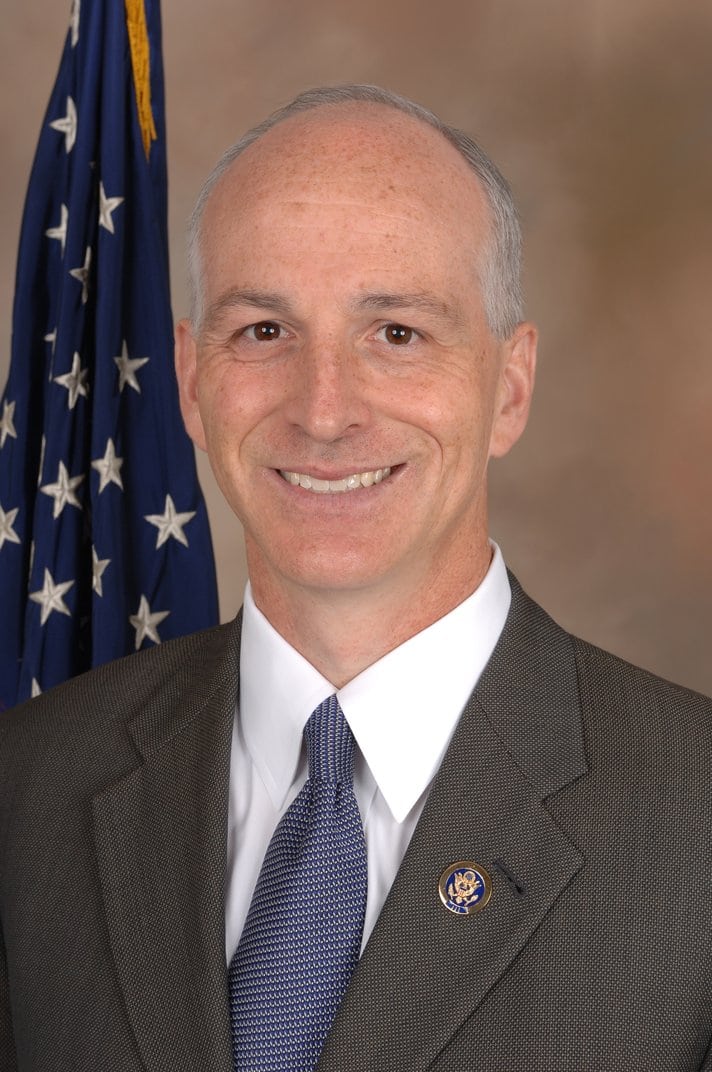
The House Armed Services Committee gave a more than $700 million potential boost to nuclear cleanup funding at the Department of Energy just before midnight Wednesday, unanimously passing its version of the fiscal 2021 National Defense Authorization Act (NDAA).
The chairman’s mark that provided the framework for the defense policy bill would authorize the addition to the top line for the Trump administration’s $5 billion request for defense environmental cleanup operations managed by the Energy Department.
House Armed Services Committee Chairman Adam Smith (D-Wash.) released his mark over the weekend, ahead of the panel’s markup of the roughly $740 billion defense policy legislation on Wednesday.
The House panel’s NDAA proposal would increase the amount set out for defense environmental cleanup by the Donald Trump administration, to $5.73 billion. Defense environmental spending is the largest bloc of money included in the annual budget for the DOE Office of Environmental Management, which oversees remediation of 16 Manhattan Project and Cold War nuclear sites.
The vast majority of the proposed increase would go toward the Hanford Site in Washington state, the former plutonium production facility considered the nation’s most complex and costly cleanup job. Total spending for Hanford would be authorized at $2.5 billion, about equal to the amount approved by Congress for fiscal 2020, which ends Sept. 30.
Funding for Hanford’s Richland Operations Office would be capped at $904 million, and the Office of River Protection would be authorized at more than $1.6 million. Each of the two Hanford offices would have their line item increased by roughly $350 million compared to the Energy Department request.
The rest of the House panel’s increase in defense environmental spending would go to the Savannah River Site in South Carolina. Its authorization would rise from $1.53 billion to roughly $1.57 billion.
The Energy Department in total requested $6.1 billion for fiscal 2021, compared to the $7.5 billion Congress provided in fiscal 2020. That covers defense environmental cleanup and two separate funding streams.
The House Armed Services NDAA would also extend by one year the current prohibition on the Energy Department reclassifying any high-level radioactive waste in Washington state. Officials in the state have pushed back against DOE efforts to essentially reclassify some types of high-level waste as lower-risk.
The Energy Department says its interpretation will be based solely on the risk posed by the waste, and some HLW could be disposed of at low-level sites. Such a pilot program is planned for Savannah River Site waste. Critics, however, say the agency is merely trying to redefine what should be considered high-risk.
About 56 million gallons of radioactive and chemical waste is held in undergound tanks at Hanford. About 10% of that is believed to be high-level waste.
Although DOE says it has no plans to alter the way it treats high-level waste at Hanford, Smith is again seeking to ensure the high-level waste at the former plutonium site won’t be covered by the new DOE policy.
The Senate Armed Services Committee version of the fiscal 2021 NDAA would increase defense environmental spending by $100 million over the president’s request, to $5.1 billion. Virtually All of the increase would go to cleanup of legacy waste at the Los Alamos National Laboratory in New Mexico, according to funding tables appended to the bill. It would restore LANL cleanup funding to the $220 million level in the fiscal 2020 budget.
There is not yet a schedule for full debate in the House on the NDAA. Meanwhile, Senate Majority Leader Mitch McConnell (R-Ky.) on Thursday filed cloture on the upper chamber’s NDAA after several days of debate. A vote is expected later in the month.
Actual funding authorized in the final NDAA would be contained in separate appropriations legislation. The House and Senate Appropriations committees have yet to release any bills for the budget year beginning Oct. 1. The House Appropriations subcommittees are scheduled to mark up bills next week.
ExchangeMonitor Reporter Dan Leone contributed to this article.